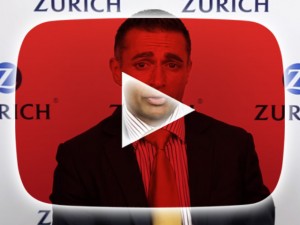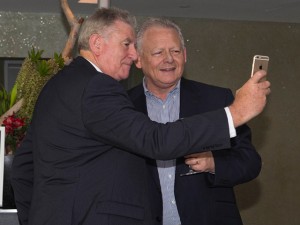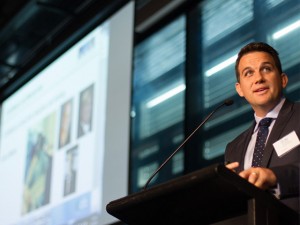Each year the Association of Financial Advisers and Financial Planning Association hand out awards which recognise advisers who are delivering high quality advice and giving back to the community. Senior Journalist, Emily Saint-Smith, spoke to six award winning advisers to find out the secrets of their success, their views on the future of the profession, and what it takes to be a good leader…
 |
Kathy HaversCatalyst Financial Group |
What is the most important thing a business needs to succeed?
It’s critical that you are clear about who your ideal clients are. In the beginning, when you’re starting out, you may find you have to take on everyone. But as time goes by you need to clarify what segments of the market you want to work with.
I believe that point of difference has to come from your core values and the things that you’re interested in. In our case, it’s about showing empathy, genuinely understanding our clients and deeply valuing those relationships.
One of our client segments emerged because of my own experience as the mother of an autistic child. There are some good financial strategies that can give families dealing with a disability peace of mind. I speak at a number of conferences and seminars on that topic regularly, because often people are not aware of the help that is out there for them.
Families with disabilities have become one of our core client groups because those clients continue to refer their family and friends, and the people who are just like them.
Empathy can break down the barriers. Yes, we do have some sad days, when clients come in and we have a cry together. But they know the advice I’m giving is coming from a place of genuine understanding. The more you know about your clients the more empathy you can show.
One of your other key client segments is women. How do we encourage more women to seek financial advice?
Many women come from a place of having no idea about how to manage their finances, because their husband or their husband’s accountant has always looked after that for them. We have a number of clients who are widows, or who are separated. The challenge for them is in never having worked, or having to re-enter the workforce, or having to draw down from their super or a pension when they’ve never had to worry about that before. First and foremost for women is trust. They need to trust in their relationship with their adviser.
Along with that comes the need to bring more women into the industry, because often women understand these challenges better than men. I’ve tried to recruit female advisers to our firm and they are scarce as hens’ teeth.
Financial planning is not really about money – it’s about the best use of the money to help that person live a truly better life
Partly, I think that’s due to the perception that being a financial adviser is all about finance, economics and tax. I would actually say that it’s 20% about that and 80% about psychology. If we get the universities and education providers to talk about the relationship building side of the business more, we might be able to attract more women into study in this field.
What do you do that delivers exceptional client experiences?
The thing that makes the most difference in our clients’ lives is the one-percenters. If you really listen to what’s important to clients, you’ll recognise there are little things that you can do that will make a tremendous difference.
For example, I’m working with a client at the moment with two autistic children. She’s separated and living a very sad and miserable life. At the end of our first meeting, she grabbed my arm and asked: “Do you think you can help me?” I said, “I know I can help you, but it will take some time.” There are a lot of things we need to work on, over time, but one of the first things I can do is find her a social worker who can help her obtain some respite from her children, so she has that time to get her life in order.
It’s not strictly what we’d call financial planning, but those little things build the trust and strengthen the relationship. Financial planning is not really about money – it’s about the best use of the money to help that person live a truly better life.
 |
Randall StoutHPH Solutions |
What makes a strong leader?
A willingness to contribute. Sometimes you can be thrust into a position of leadership when perhaps you’re not seeking it, or you feel you’re not ready. But being willing to invest the time and give something back to the profession is incredibly valuable and the rewards are huge.
In my time as CFP of the Year, and as the FPA’s WA Chapter Chair, I have met great people, I’ve grown my network, and I’ve built up my profile and presence in the media. All these unintended consequences seem to follow when you put your hand up.
What advice do you have for other advisers?
Don’t give up. I thought about quitting this business a number of times during my career. I moved firms a few times and had experiences which deflated my enthusiasm for the profession. But if you stick with it, you can be successful.
As a leader, I’m motivated by the desire to encourage other advisers to ‘keep the faith’. Being a financial planner is a difficult career; you’ve got people’s life savings in your hands, their families to protect. I want to remind my colleagues and peers that we are doing a great job and we are making a difference in peoples’ lives. If I can encourage just one planner to stick with it then I feel I’ve probably done my job.
You are in complete control of the experience you give your clients
The public perception of financial planners is not great. It’s easy for the media to report on the bad news. But it’s also important for consumers to hear that there’s a whole bunch of us that really do care about people and who put the client’s interests first.
Is there a light at the end of the tunnel as far as the current negative perceptions of the industry are concerned?
You are in complete control of the experience you give your clients. If you give your clients a great experience, and you look after them, and you deliver the services that they need, you will change their view. And that’s really how perception will change – one client at a time. Each planner doing the right thing, one client at a time, will turn things around. Our advice will never be perfect, but I’d like to think that if we give the best advice we can, with the information we have to hand, then we’re improving Australia’s financial future.
That’s one of the reasons I have put my face out there – because I believe I do that. I care about people and I believe in helping people get ahead. If people take my advice, or the advice of another CFP, then they’ll have a better financial future.
The good people can win in this profession.
 |
Kate McCallumMultiforte Financial Services |
Is there one person or piece of advice that has shaped your career?
Growing up I had the most gorgeous grandmother, who took me under her wing. I used to go and visit her on weekends and we’d sit together and talk while she was sewing. One of the things she started to talk about was the importance of financial independence.
It was something I would never have expected of her. She hadn’t had the opportunity of a good education – it was more that she had very strong views that women needed to look after themselves.
That was defining for me, as a young teenager, realising that it was actually really important to set yourself up financially. In fact, it was probably what led me to make sure I always had a sustainable career.
As I moved through the different stages of my career, particularly in financial services, I started to see more and more people who didn’t have their finances sorted. I felt that there was a real opportunity to provide the type of strategic advice that people need at the peak of their careers. They need expert help to work out how to balance the demands of mortgage payments, school fees, as well as planning for retirement, while still maintaining their lifestyle. And on top of that, few had the time to even think about where to start. It was a bit of a lightbulb moment, where I saw the opportunity to help people with strategic advice at this period of their lives.
What have been some of the challenges you have faced?
When I started the business eight years ago with my husband, I wanted it to be fee-only – no commissions, not even on insurance. I naively believed that this kind of business would be welcomed by clients and that people would come knocking on our door. It was actually very, very difficult for clients to accept 100% fee-based advice at that time. Most people didn’t seem ready for it.
our preparedness to talk about the meanders on the path to success is really important
In some ways, the GFC and the subsequent awareness around fees that that period brought, was when that attitude changed. So we were probably a little too early with our proposition – the market actually wasn’t ready for it. That was a real challenge.
That early experience has reinforced our willingness to make other business decisions that are different to many in the industry.
How does it feel to be viewed as a leader in the advice profession?
There are many, many good advisers out there. I have achieved success, but I don’t believe I’ve reached the pinnacle of advice.
What I would love to do is to encourage more of the good advisers to have a voice. I think quite often the great advisers are focused on their clients, and don’t necessarily feel comfortable talking publicly about what they do. But it’s really important to share the things that have worked in your business. To talk about the challenges and how you’ve navigated them, as well as the things that haven’t worked.
I’m very happy with the business we’ve built, and we’ve been successful, but if I look back on my business over the past eight years, there have been times when I thought we needed to change direction or that things weren’t working. We didn’t follow a straight path to where we are now. There were some meanders in there, but you learn a lot from those. And our preparedness to talk about the meanders on the path to success is really important.
 |
Tapel CaferComplete Financial Balance |
How do you build a successful advice practice?
In 2007, we had 28 people working in the business. There were six advisers with six different approaches to giving advice; six different fee methodologies, no consistency, no clear client segmentation. It was just a group of people who’d come together to create a business without a strategic direction.
The Director of the business, Graham Campbell, and I undertook to transform the business, partly to be ready for the regulatory changes that were on the horizon, but also in light of the GFC. The cost of business was rising. We sat down and asked ourselves, “What does the business of the future look like?”
We went from individual remuneration models for each adviser to a salaried adviser model. The business went from being revenue focused to being profit focused.
Once we had that vision, and the direction we wanted the business to go, we sat down with all the staff and asked them to come on that journey. But we made it clear that this was where we were headed and if the team member wasn’t happy with that approach, then we parted ways.
Within two years of making this announcement and starting on the road to change we had lost 50% of our staff, including advisers. But those that wanted to stay were truly committed to the business we wanted to build.
They have been the architects of our business success. When the judges came to our practice to assess our business as part of the AFA Practice of the Year Award, the things they were most impressed with were elements that had been designed and implemented by our team, not by myself or Graham.
I would describe our business as ‘very McDonald-ised’. It has to be from a compliance perspective; when you’ve got a big business you’ve got to make sure everyone is delivering the same message in a consistent and compliant way. Yes, you can still personalise that, but it’s about giving everyone the same experience.
How important is it to build a strong team culture?
Cultural-fit is an exceptionally important part of our recruitment process. Ours is a family-based business that supports mothers, students, etc; we advocate having a really strong work-life balance. In fact, one of the things we provide our employees is personal training. Every Wednesday, for an hour, during work time, our staff are able to step away from the desk and focus on their health. It’s one of our points of differentiation.
It’s always hard to recruit good staff, and we certainly can’t compete with the salaries and benefits that the banks offer, so we need to find other ways to add value to our staff’s lives. One of those ways is by giving them ownership over a part of the business.
accept your limitations, and empower those who possess the skills that you don’t
We asked our team members what they thought they were good at, and what they enjoyed doing, not just in the business but outside it. We were pleasantly surprised to find a tremendous amount of talent and skill within our team that we had no idea existed. For example, one of our staff goes home of an evening and designs Excel programs. What she has done for our business in terms of managing data, analysing data, organising systems, etc, is incredible. We gained so much just by asking questions.
We still run our annual planning days, as we did when we started back in 2007, but now all of the team are involved in presenting on where the business has come from and where it is going. All our staff are ‘organisational champions’ – they take on responsibility for a particular area of the business, based on their strengths. For example, we have an XPLAN champion, we have a charitable champion, etc. It means all our staff are responsible for helping us achieve our annual goals. They have ownership over the business and its success.
What makes a good leader?
A good leader is one who has the courage to firstly make a decision and then the conviction to lead; the patience to mentor, and the empathy to guide his or her team along the path to success. Back in 2007, I presented a proposal to Graham that was based on sound planning, but included calculated risks that would test the resolve of any business owner. If Graham was focused on the negative, risk adverse or lacked the belief in his team, he simply would not have agreed to the business plan and path I had set for the business. Pleasingly, Graham embraced the plan, and as the leadership team we preached our vision to the staff and continuously reaffirmed it with them. Keeping staff informed and accountable through this period is the responsibility of the business leadership. We set our performance benchmarks and assessed ourselves at each point. As a leadership team, Graham and I played to our respective strengths and stayed true to the business plan.
It’s also the ability to accept your limitations, and empower those who possess the skills that you don’t. This industry is changing so quickly, there’s no way anyone can claim to know everything. Technology, compliance, legislation, product – it’s very difficult to keep ahead of all those developments. So understanding your limitations, and bringing in people who are able to help take your business to another level, that shows the mark of a good leader.
 |
Stephen GodfreyVisis Private Wealth |
There is a lot of negativity surrounding the sector – how do you deal with it?
It is sometimes very demotivating – you feel like your profession is the punching bag. I call it ‘noise’; not because it’s not important, but because it’s distracting. You have to accept that it is there.
The way we can change the public’s perception is by doing the best by our clients. You need to be happy with the way you’re providing advice. I do believe that if enough advisers are doing that we will see the overall view of advisers lift. Yes, the associations have a key role to play, through consumer campaigns and interactions with governments, but a lot of it is about what we do in the trenches day to day, with our own clients.
At times you will meet with a client who has had a negative experience with another adviser. It can be challenging to overcome their negativity. But all you can do is give it your best try. The thing is, these people do understand the value of advice. They understand why they need advice, and they come back to it. But it may be about finding the right fit for them.
Our profession is one of the most important around – we’re helping people with their financial futures. So you either do your best to help turn around those negative perceptions, or you get out.
This is not a ‘turn up at nine, leave at five’ career
How important is increasing education standards in addressing that negativity?
The public is starting to expect advisers to have formal qualifications. It’s not the be all and end all, but until we have that, people will not look at their adviser the same way they do their lawyer or their accountant.
Whilst formal education is important, there’s so much more to advice. In many ways, soft skills are just as important as technical knowledge. If you can engage people and put them at ease, you are really delivering the service that the client is paying for – peace of mind. You can’t do that by reading from a book.
I think one area we could improve upon in the formal education space is introducing more practical skills applications. Within a law degree, for example, students do a lot of mooting – they’re taking the technical knowledge and applying that in a real-life scenario. There is room in the financial planning courses for this.
What is your advice to other advisers?
A career in financial advice is not for the faint-hearted. This is not a ‘turn up at nine, leave at five’ career. You do take everything home with you, it can keep you awake at night, but it is rewarding on a number of levels. I don’t believe there’s another job in which you can get to know as much about another person. We’re dealing with family dynamics, health and medical issues, and of course their finances – it’s why they need to trust you, but they also need to own their decisions.
You’re building a partnership between you and your clients. They have to buy-in to your advice. The worst thing I could hear from a client is: “Go ahead, I trust you”. I don’t want them to do something because they trust me, I want them to do it because they understand the advice, they believe in it and they can make an educated decision. I want my clients to share in the decisions, because if something does go wrong, we can both own that position.
 |
Eleanor DartnallDartnall Advisers |
What does leadership mean to you?
Firstly, it’s about allowing my staff to grow, learn and eventually pass me. You need your staff to be involved in whatever new business project you take on, because they’re the ones who are going to be running with that every day. They’re the ones who will support you as you develop.
It’s also about always thinking of better ways to deliver advice, better ways to educate our clients and finally, once you’ve developed and tested the new ideas, it’s about giving back to the industry by sharing them with your peers.
I sometimes feel as though we don’t know what best practice is. We all think what we’re doing is the best way to give advice, but what if someone else has a better way? I’d like to be better, so I want to know what else is out there. It is in my clients’ best interest for me to seek better strategies, better ways to educate my clients, and better ways to have that ongoing relationship that is so important to the retention of clients.
We need to be much more open to sharing with one another; if we do that, this will be the way forward to a better service delivery across the industry. Advisers are hungry for practitioner stories – we need to find a way to come together to discuss what we are doing and whether it could be bettered.
We’re all playing in the same sand-pit, and there’s plenty of clients for everyone.
What’s your advice to people considering advice as a career?
Financial planning is one of the most testing professions, because you have a huge responsibility for other people’s wellbeing, and right from the start you need to have a sense of that responsibility. But the rewards are worth it; it’s not the monetary result – it’s the engagement journey.
You have to keep learning. This is not a profession where you come out of university with a degree and that’s all you’ll ever need for the rest of your days in this role. There’s never a day when you don’t learn something new. There’s never a client who is the same as the one before, each needing different solutions and different support.
If I’d come straight out of university and become an adviser, I don’t think I’d have been a very good one. That isn’t to say that young people can’t become very good advisers, because they can definitely learn to do that and I’m seeing many examples of fantastic young advisers. But while these new entrants come with technical knowledge, they still have to learn how to engage with individual prospects and clients, and that’s a whole different set of skills. Being coached by an experienced adviser will help a great deal here, and the AFA’s mentoring program is helping fill this much needed support gap.
We’re all playing in the same sand-pit, and there’s plenty of clients for everyone
My journey during my formative years and my 25 year executive career is what I bring to the table when I meet with a client. My ear has become attuned to a wide range of issues which are sometimes not openly expressed in the first client-adviser meeting. These issues often form the basis of the client’s anxieties and why they have sought advice.
What do you love about your job?
I didn’t expect advice to be anything like it actually is. I previously held a senior role in a business where I managed a team of advisers, and in that role I was focused on process, turnaround and conversions. On becoming an adviser myself, I didn’t expect advice to be such a full-on, personal engagement. But that’s what I love.
It is a client engagement journey. It’s what you’re embarking on when they come for their first meeting. The trust the new client has in the adviser is a huge responsibility and places on me an obligation to ensure that they have sufficient knowledge to provide me with informed consent when agreeing to my advice. It’s finding solutions that might take them down a path that isn’t really easy for them – that’s such a big responsibility.

















